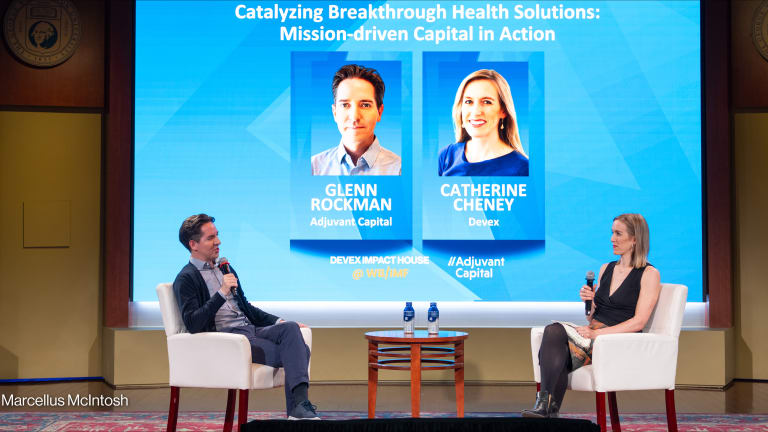
For small-scale farmers, having access to financial services can mean turning subsistence agriculture into business. Providing them with access to financial services, though, involves risks, according to James Mwangi, CEO and managing director of the Equity Bank in Kenya.
These risks emanate from the lack of capacity of these farmers to use financial products, he argued.
“It is like giving someone who doesn’t know how to drive a car,” Mwangi said. “This is why is important to build capacity to the farmers, not just assume they have the intellectual capacity to use modern products when you are bringing them from what you could call subsistence farming and quickly you are pushing them into a modern financial sector.”
Partnerships can address this challenge, he added. Currently his company and the MasterCard Foundation offer training courses on financial management and entrepreneurship for free to women and youth in Kenya. The goal: to reach 1 million beneficiaries by 2014.
The Forbes Africa Person of the Year 2012 spoke with Devex on the sidelines of the recently held International Fund for Agricultural Development annual meeting in Rome. He shared insights on creating successful partnerships between the private sector, donors and small-holder farmers.
What makes a partnership between the private sector and small-holder farmers successful?
The essential factor that make partnerships successful include a shared objective. There must be a shared objective that brings the partners together. There must be principles on which the partnership is built on that everybody acknowledges, rules to play by. …
There must be a good formula of sharing the benefits, the risks and the costs of investment in a partnership. There must be a basis agreed in advance. Lastly, there must be a mechanism of measuring performances … You must be able to review constantly the performances.
Who should facilitate these partnerships?
Donors have a very significant convening and mobilizing power, simply because of their resources … and the trust and respect.
[Donors] can play a huge role, but they need to be complemented by the government, because then the government can be a facilitator. It creates an enabling environment within which their [aspirations] on the objectives of the partnership can be fulfilled.
It helps to remove the bottlenecks, but essentially the small-scale farmers need to be at the center of the partnership and should have a say on how the partnership [should work] because the partnership is intended to support the farmers.
The private sector is a player. They also have a huge role because they form the value chain, they form the ecosystem that supports the farmers.
All partners have a huge role, but the donors have a greater capability and strength in mobilizing the formation of partnerships.
What lessons have you learned about working through partnerships?
Over the last 10 years, as Equity Bank, we have had enormous [knowledge] of what works and what doesn’t work for partnerships. Every time we learn, we use that as feedback to the process to improve the quality of the partnerships.
We become more innovative; we become more creative as we learn the lessons on what is working and what is not working, what can be changed and what roles can be interchanged and what roles cannot be [switched around].
The biggest lesson we’ve learned is the power of collaboration and cooperation in scaling, in creating sustainable small-scale farmers’ initiatives.
As a banking institution, what do you think is your role in supporting small-scale farmers in those partnerships?
Financial partners have a huge role to support the farmers and they can do this by taking a long- term view. It is not a short-time view. … They must focus on a win-win situation, so as to sustain the partnership. That is the role that they can play.
The second role that they can play is to build the capacity of the farmer. …Part of this is by training the farmers. [Financial institutions] need to go beyond provision of financial services. They need to know that the farmers require more capacity. So, as to start, if farmers have to increase output, if farmers have to participate in a comprehensive system, you need to enhance their capacity.
Are there innovative financial instruments tailored to small-holder farmers you see on the horizon?
I think small-scale farmers require a whole [range] of financial products; it’s not about credit. They require access to savings, they require access to credit, they require access to financial transaction process and insurances. … The only thing is that they need … transactions that become relevant to them and affordable to them.
I think crop insurances and livestock insurances are new products that are very central to small-scale farmers, particularly one to protect them.
Do you envision any specific private-public partnerships in developing these products?
Absolutely, that is where donors can bring in because insurance companies don’t have enough data. You need donors to come and say, “We are able to have enough data to enable the right pricing of these products.”
Join the Devex community and access more in-depth analysis, breaking news and business advice – and a host of other services – on international development, humanitarian aid and global health.








